FACTIONS

It's late 1921, and the Eurasian continent is being torn up by struggles that will soon manifest in the all-consuming maelstrom of the Second World War.
While the powers of globalisation, industry, and mechanisation have mostly incited the gradual convergence of most nations' armies to a common level of technology, there are still however holdouts who - by choice, or by compulsion, continue to follow the old ways of their ancestors in warfare. Some nations - such as Estonia and Latvia - have absorbed all manner of different styles of warfare and the latest in Great War-era technology for their own ends. Others, such as Poland and Turkey, have not only done so, but are on the cusp of becoming new powers in their own right. Yet still others, such as the Chechen-dominated Caucasians, or the distant Tibetans, are forced to rely on older weapons such as swords or even arquebuses.
Regardless of these discrepancies, for now, while Europe proper is mostly at peace, exhausted and sickened by the Great War and the Spanish Flu, the same cannot be said for its eastern reaches, or the entirety of mainland north Asia: civil war continues to tear apart the lands of China and Russia, posing new threats - as well as opportunities to their neighbours, who have begin to intervene in the civil war in Russia on behalf of what they think is the rightful and legitimate government of the land.
How will these struggles for history play out? I suppose it is up to you.
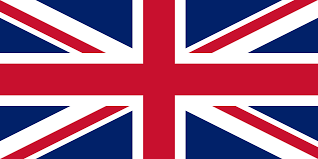 | The British Empire still remains the most powerful force in the Old World, and is almost second to none in economic might, save the fledgling United States of America - but it is one that nevertheless cannot be underestimated. Almost one in five of every human being on earth lives within Britain's influence, and in Fallen Giants, this shows. Aside from being able to raise some of the most powerful weapons, including dreadnoughts, tanks and aircraft, the British Empire supplements its own conventional forces of rifle infantry, cavalry and antitank rifles with units raised from India: namely, Sepoys and Gurkhas. Britain's demographic mass means that not many factions ought to trifle with the British, as tempting as it may seem. Yet how long can the British hold out? even as the British continue to attempt to preserve democracy for the fledgling Baltic and Caucasian republics, whilst attempting to fulfill its vow to support the Russians in their fight against Bolshevism, there are signs that the Empire is running out of time. Caught out of breath after having to fight the late German Empire on two continents, the British were attacked by a resurgent Emirate of Afghanistan, forcing the colonial government in India to negotiate concessions with the Afghans. Things are not looking any better in Ireland either, where civil unrest has broken out in a massive uprising, and there are signs that India may follow suit, with former lawyer-turned-agitator Mohandas Karamchand attempting to marshal civil disobedience, while terror attacks and civil disorders continue to roil India and Britain's possessions in Asia. A quick end to the war in Russia to gain breathing room to tend to internal affairs is probably what the Empire needs - but how can this be done? |
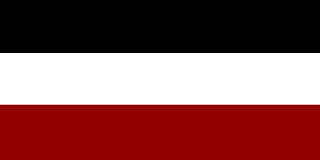 Germany Germany | Despite clearly being the biggest loser in the Great War, Germany is still not fully down and out. In spite of the horrific losses the European nation has had to endure both at home in Europe, as well as distant Africa and China, the German nation has nevertheless managed to stay intact and whole. Yet, the fledgling republic is at a crossroads, even as it continues to face the erosion of German influence in East European affairs. Uprisings sponsored in eastern Europe after the Great War failed to keep the eastern end of the Baltic in German hands, while the fledgling republic of Poland has broken free from domination by Austria, Russia and Germany - and is set to become a rising power in east Europe. Yet, probably more dangerous still is the brewing internal war within Germany's borders between supporters of the old Reich and a new group of insurrectionists - the Communists, who inspired by the Bolsheviks of Russia wish to overthrow the state of affairs and spread chaos, terror and destruction under the guise of liberation. Despite the Kaiser having squandered a good part of German manpower, hardware and intangible assets in France, the German state nevertheless still has vast reserves of manpower and materiel for use in settling the disputes of the day, thanks to the shrewd leadership of generals such as Paul von Lettow-Vorbeck, the Lion of Africa, and Marshal von Mackensen, notwithstanding the harsh conditions of the Versailles treaty. Germany, too, still has much clout across the the world, especially with those who do not see eye to eye with the Entente: the Chinese seek German aid in matters civil and military, while the Finns - by far Germany's biggest supporters - also spearhead a band of European nations eager to seek a third path between what the British and the Bolsheviks insist upon for the West. Playing its cards right, the German republic may well have a golden future ahead of it. |
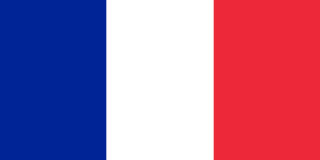 | France is the second most powerful and influential of the great world empires of the time, with a presence that is no less awe-inspiring compared to that of Britain's in the world. It may not have the vast manpower reserves that the British have inherited in India, but the Second French Republic still has considerable clout - fed by natural resources, particularly from Africa and Indochina, and its newfound wealth in hydrocarbon power sources such as coal and oil, France can underwrite the will of its body politic with industry and military might, notwithstanding the horrendous losses of the Great War with Germany. Even so, France is not fully invincible. The scars of the 1870s war and the Great War with Germany have not fully healed, and like Britain, France is a juggernaut living on borrowed time. Despite it and most European nations having committed to the White cause in Russia alongside the United States of America, the war itself is not going in their favour. Equally, just like the British, the French face trouble in their colonies, both old - as well as new, in the Middle East. Even so, perhaps the worst enemies of France are not these rebels, but the Bolsheviks' sympathisers .... and their most ardent rivals within metropolitan France. Modern France - the Republic - may have been born through the spirit of revolution, but if this spirit is corrupted, or unmoderated, there is the chance that all that France stands for - liberty, equality and brotherhood - may well be trampled underfoot by international currents. With democracy and liberalism facing what could well be their twilight years - not just in Russia, but in neighbouring Italy as well, the future of the Republic, such as it is, and how it sees itself now, is far from assured at this point in time. |
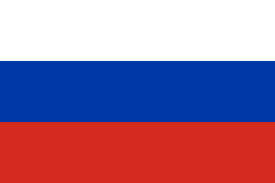 Russians | A fierce warrior race, the Franks (or as they call themselves, "the Free Ones") have raised themselves from a small ragtag band of Germanic refugees from beyond the Rhine into a power in their own right. To subdue and assimilate Romans of their lands, the Franks embraced the ways of Jesus Christ, yet while apparently wise, has led to the Franks incensing those European tribes beyond the old Roman pale who have yet to embrace Christianity, most notably the warlike Avars, the ferocious Saxons and the cunning Norse peoples of Scandinavia, while differences in doctrine as well as the fact that the Caesars are peeved at Frankish attempts to secure the city of Rome have done little to promote diplomatic relations between the Franks and the Eastern Roman Empire. In which case, the Franks may well have to resort back to arms to insure not just their newfound power, but their survival as well. the French are not really a rush civ per se given that their units are all given towards having more hitpoints and speed, the economic and technological bonuses at France's fingertips make it more suited to a wait-and-see game. The abilities to build your first wonder and research your first government instantaneously can be used to France's advantage in picking your new strategy as quickly as possible. |
 Soviets | An outpost of Romanised Britons in a deluge of Norse, Saxons and Celts, Strat Clut is the last of the Roman Empire's client-kingdoms in Britannia, and Stratcludians pride themselves as such - as pure Roman Britons, even having recorded the Romans' gods and goddesses and worshipping them. The current dynasty seems quite ataken by this in particular - to them, upholding Roman values is a must. Unlike most other ancient nations, the sages of Strat Clut are well-read, with intellectuals and scholars abound. They strive to follow what Tacitus did - record what occurs. Strat Clut pride themselves on their ancestry, research and crafting, and the olden days of Roman Britannia, and while following the old ways of the Câseres of old has its perks, it also has its drawbacks - against their more uncultured neighbours, Strat Clut can bring forth some well-disciplined heavy infantry and cavalry, but otherwise, the kingdom lacks much. In comparison with the REAL Romans (that is, the East Roman Empire) Strat Clut's units would seem more medium in role as opposed to being genuine hard hitters, dooming them to being "jack of all trades but master of none." |
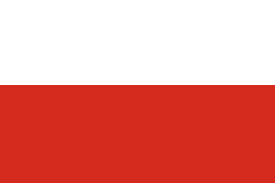 Poland | The Abbasid Caliphate was the third dynasty to succeed the Islamic prophet Muhammad. Unlike the Ummayads, they succeeded in conquering much of the Islamic world and beyond. The Abbasids were known to rely on Persian customs and they were broadly adopted by the ruling elite, but have been forced to cede authority over many of the lands of North Africa and continental Europe to the Umayyads, the Idrisids and other local Muslim rulers. Nevertheless, they are the all-round strongest Islamic faction, taking into account their own powerful roster as well as their vassal states, which give them reach across the world, from Italy in the west all the way to the very borders of India in the far east. This, including their position as the heirs of Persianate culture as curated by their Umayyad predecessors render the Abbasids as a powerful and versatile faction, capable of many different strategies. |
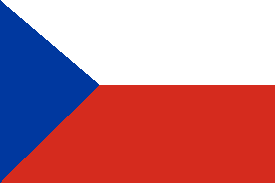 Czechoslovakia | Strongest of all the Norse nations, Denmark is a major military powerhouse, sporting a strong military and naval tradition. If Norse vikings and longships together are a byword for terror to their neighbours, then Denmark must be the most fearsome nation in all Europe, owing to the great wealth and influence with which Denmark's kings hold sway over the rest of the Norse world - and the number of men and fleets such influence can rally to the banners of Denmark. Denmark has been readying itself for the incoming storm of Francia for some time, laying claims to those petty kingdoms in Norway and readying itself militarily with the so-called "Great Heathen Army" to assault England. Denmark was so powerful, even with most of the leadership heading towards England and a more fertile land, Denmark still had the power to keep the Franks at bay. They eventually attempted to attack Paris in a failed assault - but all this did was alert the Danish Kingdom that they needed to advance themselves militarily. They did just that, and they were a force to be reckoned with as they forced Britain to its knees. With the help of the unified Kingdom of Norway they would match Francia in power even as their forces were focused on Britain. |
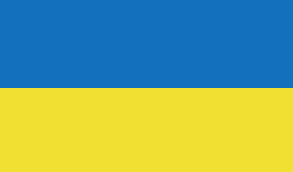 Ukraine Ukraine | King Alfred of Wessex wasn't ready for the crown when his brother died in battle against the Danes but upheld his trust in God and set out to defend Wessex, to his final breath! Adapting the tactics of the Vikings, eventually, and with King Alfred at the head, the West Saxons repelled and were known as "the last kingdom" after the Great Heathen Army landed, and then indeed the Summer Army under Jarl Guthrum not long after. Britannia was overwhelmed, and King Alfred, with his God on his side, did his best to uphold Wessex and never became a puppet as other English kingdoms did such as East Anglia, near immediately the Vikings held all of England and thankfully he was well-read and did indeed document everything in his chronicle: today known as the Anglo-Saxon Chronicles. The West Saxons were known for their strong defense before the Norse came, hence how they held out against the Norsemen so well. Thus, in The Northern Ravens it is the most defensive faction, and so is the strongest of the Anglo-Saxon civ. In game, Wessex builds up to be a balanced faction capable of strong offensive invasions as well. |
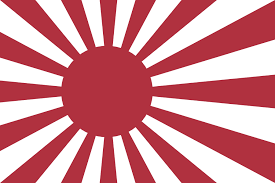 Japan | West of Britain lies the island of Éire (otherwise known as Ireland) colonised by several realms. Although they in theory constitute a single nation, the many realms of Ireland are often at odds with one another, and frequently squabble with one another until one of them becomes dominant enough to exert its influence over the rest, and elect either itself or another party as Ard-Rí nanÉireannach - High King of Ireland - who will then go on to exert power from the Hill of Tara. However, the Ard-Rí grip on Tara isn't guaranteed any more than whatever control Tara has over the rest of Éire - not only are the realms of Mhumain and Laigin recalcitrant toward this arrangement, they too have formed their own confederation (with help from the Vikings) that asserts their independence of Tara. Yet this could pale in comparison with an even bigger problem - almost all of the realms ruled from Tara have embraced Christ, with one stark exception - the kingdom of Connacht, whose rulers continue to staunchly resist conversion. This does not bode well especially since the Ard-Rí at Tara is very dependent on Connacht for protection and enforcement, being by far the largest and most puissant of the Ard-Rí's vassals. How the kingdom will survive these local pressures is something that only the gods themselves know, but one thing is certain - Tara itself has vast resources at its fingertips, and the Ard-Rí can count on his household units - comprising heavy infantry in the main - for the defence of the kingdom. This they have done, and have thus far managed to keep the Norse at bay. In addition, Ireland is rich in gold - and the kingdom is not without vast resources of Wealth from mining activities, allowing the Ard-Rí the ability to buy his way into power, either by recruiting more mercenaries, or with investments into Civics to expand the reach of the kingdom. |
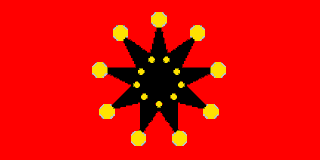 Republic | Not all of Éire bends the knee to whichever imperious fool claims Tara any more than to any other local Irish strongman. On the other hand, some have found it meet instead to support foreign rule, either out of fear or desire. Fear of dominance by the kingdom of Connacht to the northwest has left the lords of the south and the east to "import" a slew of Viking clans as rulers - namely the Uí Ímair or "Sons of Ivar", who now hold sway as magnates over a confederacy of Irish states, dominated in the main by the realms of Laigín and Mhumain. From their seat of power at the longport town of Baile Átha Cliath (or Dyflin, to the Norse) Uí Ímair's rulers rule not just legions of Norse and Irish warriors, but also a highly decentralised nation, very dependent on taxation of trade flows for its existence. In addition, the Norse rulers of this Irish confederacy also are proficient colonisers, and are ever eager to open new lands and raise new towns - which in turn would generate more trade revenue and warriors as the colonists raise new generations of children. |
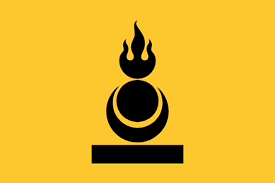 Mongolia Mongolia | To Cymru's west lies Mercia ("Mierce": "march"; "borderland") - a proud Anglo-Saxon kingdom, and for good reason: under their king Offa, the Mercians have emerged as the largest and most powerful of the seven Anglo-Saxon kingdoms of Britain (the others being the triumvirate of Eastangla, Essex and Northumbria, and the smaller and weaker nations of Kent, Sussex and Essex. As such, by virtue of its size, Mercia exercises near-uncontested control over some of the richest and most fertile lands in southern Britain. However, all is not well. While the Mierceid king Offa has proven his mettle creating a stable and powerful nation, it has not come without a terrible cost: to ensure a smooth succession to his son Ecgfrith, Offa had many potential pretenders - his own relatives - put to death. Offa is growing older by the day and is not expected to live long, while the ferocious Welsh of Cymru, although contained, have not waned in might. Nevertheless, Mierce is rich in fertile soil and can support a vast cavalry force - a novelty for a British kingdom. Any player who wishes to lead the Mierceids to victory will not find the kingdom to be too poor or weak to support any endeavour. |
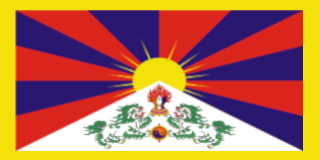 Tibet | Not all Norsemen are vikings, nor are they inclined to seek wealth solely through exploitation and plunder, even if their Frankish foes would think as such. To the far east, Norse princelings have managed to make their presence felt around the lands east of the Baltic Sea, and have found a profitable niche for themselves in trading the fabled amber of this region westward, in exchange for what goods may come from the west - most particularly, gold and other precious metals from Ireland and the British Isles. Such is the position these Norsemen and their children - known as Varyags to their local Slavic retainers and rivals, and varangoi or Varangians to the Romans in faraway Miklagarðr - but as lucrative as it is, such profit comes not without risk. Not all Slavs have proven to be so accommodating to the Varangians - the local Drevlians continue to spearhead Slavic resistance, while, the mighty Turkic Khazar khanate to the south exacts heavy tolls on Varangian convoys seeking to trade with the Romans or the Abbasids. Nevertheless, the potential bounty and profits of these lands in the east have convinced many Norse to stay on, but in these times, only dominance can guarantee survival - and the Slavs must be subjugated and the Khazars scattered if the Varangians are to survive as a single nation. |
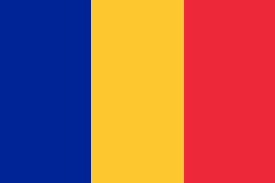 Romania | Not all Norse nations concentrate, as the Danes may do, on the acquisition of bloody spoils and fertile soil for sustenance and conquest, especially when the machinations of Loki and Hel can easily turn such things to become little more than ashes and broken dreams. Some Norse nations find themselves tasked with the propagation of law and in keeping the Norse peoples in line, lest they upset the Gods and prematurely trigger Ragnarök - the end of all things in a sea of blood. This is indeed the role the people of Uppland have adopted, regardless if they were charged with it or so chose to shoulder the burdens of keeping the faith alive, and the kings of Uppland are dedicated, along with their smallfolk, towards this task. Uppland's people, centred around the holy city of Uppsala and its three temples, are mostly invested in two things - enterprise, and defence. Not only are the temples of Uppsala held in awe by the Norse across the world, the city too itself straddles a vital central point in the Norse world, being located directly between the realm of the Varangians to the east, and the British Isles to the west, and continental Europe to the south across the waters of the Baltic Sea. As a result, Uppland prospers primarily through the collection of trade and tithe alike, but its poor soils and position mean that it is often dependent on the kings of the Danes for military aid, although it is not without its own vassals and allies across Scandinavia. |
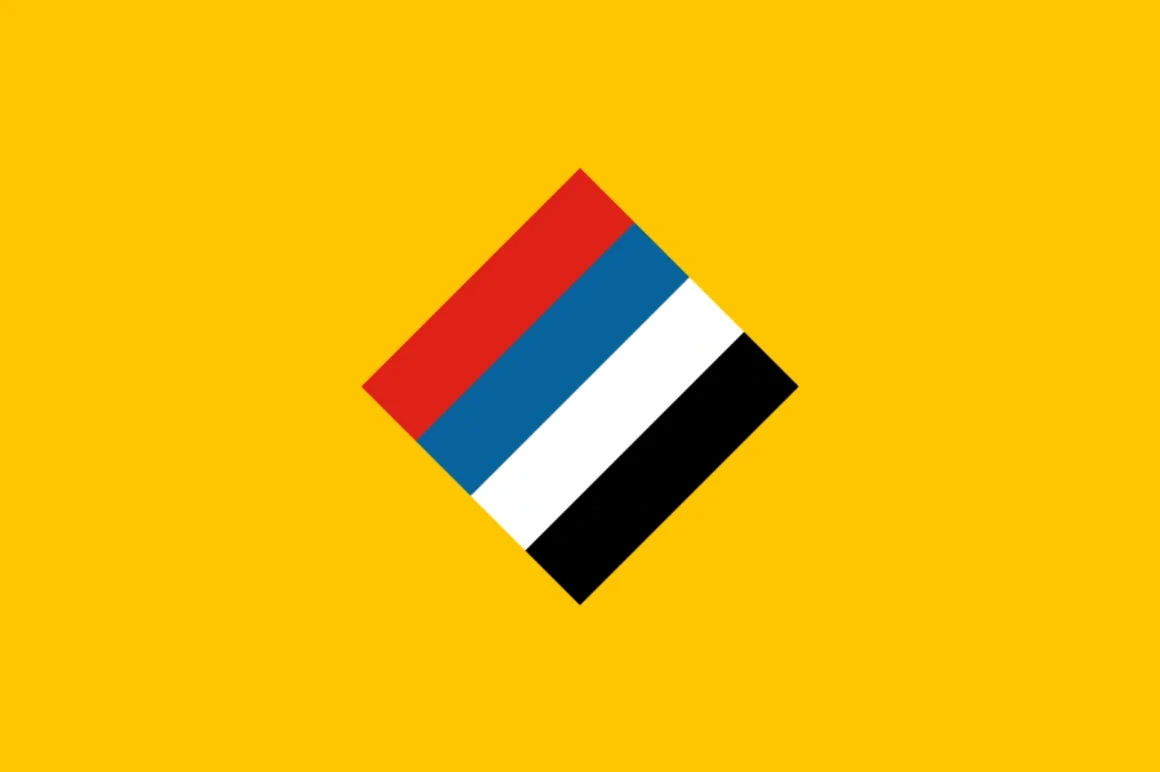 Fengtian | The "Kingdom of the South Isles (Suðreyjar)" consists of a gaggle of small islands north of Ireland and northeast of Britain, colonised by Norsemen. These islands, while poor in treasure and land, have two benefits - they are not devoid of fish, and are close to the rich lands of Alba and Éire. In fact, it is this very proximity to the lands of the British Isles that motives the Norse to colonise these islands, with an intent toward using them as a base to raid England and Ireland. Despite the relative fertility of these islands' soils, lack of land and harsh weather means, nevertheless, that Suðreyjar - consisting not just of the islands the contemporary world calls the Hebrides, but also the jarldoms of Dublin and the Irish realm of Laigin (present day Leinster), is a nation dedicated primarily to war. Suðreyjar is dedicated to naval forces and raiding, but must resort to the recruitment of Jomsvikingr and other mercenary forces. Equally, the lack of land means that Suðreyjar is unable to raise Farms - it must claim them from enemy settlements and defend them. As a result Suðreyjar are a niche civ, meant for use in maps with lots of water and very little land. |
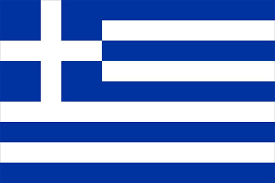 Greece | While the Abbasids hold sway over the Levant and the Asian portion of the Islamic world, the Umayyads - under the rule of Abdul Rahman - still dominate Spain as the Emirate of Cordoba. Yet they are far from safe. The Umayyads are not held in high favour by the Franks, no thanks to their devastating raids on southern Gaul decades ago which were turned back by non other than Charles Martel. Now, the Frankish kings have been speaking to the Abbasids, and it seems that war is coming as the Franks and Abbasids must be conspiring to finish them off .... Nevertheless, this bastion in Spain guarantees Umayyad control over a highly opulent, developed and cosmopolitan world far removed from the hot and sandy wastes where the One True Deen was revealed to the race of men - with the hallmarks of culture and knowledge. After all, it was the Caliph Ali who remarked, "There is no wealth like knowledge". Thus, they are acquainted with the lucrative trade routes out of Africa into Europe and Egypt, and thus Wealth, so long as trade isn't neglected, should not be an issue for the Umayyads. Yet, the loss of Asia and Egypt means that for the Umayyads military manpower must come out of Africa and Spain, or the few clients that they control on the Iberian peninsula. |
 Afghanistan | Of all the German tribes, the Saxons are the staunchest in the defence of their lands and pagan ways as well as the fiercest in their resistance to Frankish hegemony in Germany. The old ways are thus strong with the Saxon tribes as they were centuries ago. Yet, this is a state of affairs that might not last long, for Christian zeal aided by Frankish lances and Roman gold, has struck deep blows which threaten the German way of life. And the Saxons are fast becoming a pagan islet in the way of an impending deluge of Christianisation. If the Saxons had fought the hardest in past centuries, they must now redouble their efforts to hold back the Frankish hordes and stem the march of Roman Chrstianity throughout Europe before the laws of Woden are lost — along with any semblance of freedom for the Saxons and their pagan German allies in this world. |
 Estonia Estonia | While the Gökturks to the east are beset by the Tibetans and the Tang Chinese, and the Avars to the far west slip into corruption and decadence, the Khazars instead have waxed wealthy, spreading their influence from their strongholds in the Caucasus into the far east and west of the world. Investing in stability and order has not just helped the Khazars exact tribute from the Turkic tribes, but has also made their rulers wealthy potentates ruling over a vibrant and sophisticated cosmopolitan nation. Stability brings trade - and trade, taxes. No goods from the north may pass into the lands of the Abbasids without the leave of the Khazars, and caravans intending to exchange the refinements of the civilised world for the resources of these wild lands may survive without Khazar protection. Such a position, however, is enviable, and the Khazars attract more than just envy. The Abbasids, intent on spreading the deen into Asia, have fought many bloody wars in the Caucasus to dislodge the Khazars, while the Eastern Roman Empire, while seemingly aloof, must certainly harbour sinister designs on Khazar lands. The Khazars are still Turks, after all, and are no stranger to the saddle, the bow and the lance. It is after all this martial mastery that has helped the Khazars to keep the Abbasid Ishmaelites at bay in the Caucasus, but it will be your guidance that will be needed to keep things that way. |
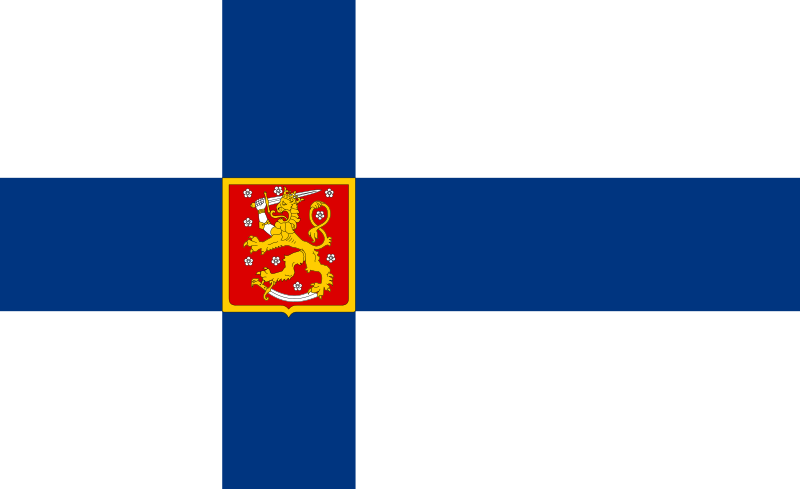 Finland | While seemingly poor and unproductive, the lands of the Frisian Confederacy belie its strategic position between the Franks to the west and their pagan foes to the east. This has not been lost on the Franks, who have exhibited a strong interest in subjugating these lands and annexing them into the great Frankish kingdom. Unsurprisingly, the locals of this region are amongst some of the most militant in the lands of Europe, with Frisian society being highly militarised, and the nation consisting of bands of armed men living with their dependents.
|
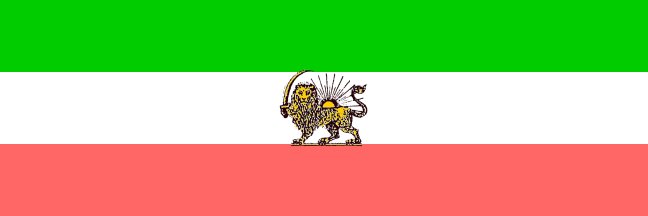 Iran Iran | Unlike the Khazars who have apparently embraced cosmopolitanism (as a ploy, most likely, to reduce resistance to them from the Romans and the Arabs and to preserve the power structures built by the khans), the Turkic Bulgars who of late have settled in Thrace seem more interested in taking a different path - the Slavic language of the Bulgars' subjects is increasingly being adopted by Bulgar nobility, while the rulers of this new nation - the Empire of Bulgaria - have begun to remake their people and their nascent nation into an East Roman facsimile. This new Bulgar kingdom has begun to adopt the best of its Byzantine neighbours - especially with regards to architecture - and so has begun the long process of transition from a nomadic pastoralist people to a mighty nation of cities and castles. Yet such progress has never fully been appreciated by its more venerable southern neighbour, who, worried with the strides the Franks are taking in usurping its rightful place in the west, must certainly be frightened by Bulgar intentions on Greece and Anatolia. Twice the Bulgars have fought wars with the Byzantines, and while true victory was elusive, these wars proved that the Bulgars could well match the Romans in strength. |
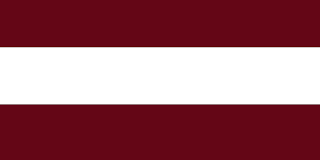 Latvia | Northanhymbre ("North Humberia") occupies the far northern reaches of Saxon Britain, and is the shield of the Saxons in the north, fighting against the Britons of Strat Clut, who seek to cleanse Britain of the Saxon presence. Still, these Britons are but the least of Northanhymbre's concerns - the kingdom itself was forged with blood from two smaller kingdoms, and succession wars are commonplace in Northanhymbre. Yet, war and violence aren't the only things Northanhymbre is known for - its proximity to Ireland, as well as its Romanised neighbour Strat Clut have meant that Northanhymbre sits at the crossroads of 2 different cultures, and if the kingdom is known for nothing else, it is a major bastion of culture alongside Strat Clut in northern Britain. Contacts with the Christian Irish have resulted in the transmission of culture both material and spiritual to Northanhymbre, and Irish monks have founded a colony on the distant isle of Lindisfarne. Yet this veneer of sophistication does nothing to subtract from the harsh fact that politics in Northanhymbre is a bloody buiness which needs to be resolved quickly to preserve the survival of the kingdom; the Mercians are on the march, while there are rumours of trouble abroad in the Continent - disunited and unaware, Northanhymbre will surely be pulled apart. |
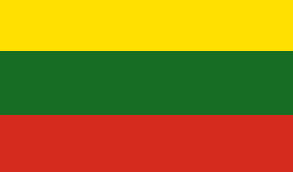 Lithuania Lithuania | Norsemen in a land of Roman Franks, the people of Normandie (viz, "North-man-land") consist of Vikings and their dependents settled in the western reaches of what was once the Gallo-Roman province of Lugdunensis. The Normans are fearless - with Francia focused on vicious domination of Normandy itself, Frisia, and Saxony and its allies, the Normans will rely on a lot of help from Brittany another under the Franks' eye for domination. The Normans and Bretons have had very close ties since the capturing of the territory by King Rollo. The Bretons pay them tribute, and help them field good cavalry. |
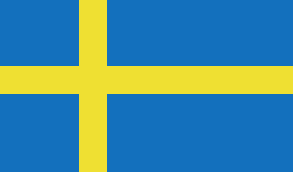 Sweden | On the westernmost fringes, facing the foreboding Atlantic Ocean lies Norway, a vast landscape of broken terrain and mountains, with very rich in opportunities for hunting, foraging and mining. So much metal and so little food in Norway means that the nation itself is dominated by many squabbling tribes, who often leverage the high places of Norway's terrain to build well-defended settlements which garner wealth, either through the exploitation of nearby mines or the taxation and generation of trade. However, not all Norwegian rulers enjoy this state of affairs, and have witnessed the gradual gathering of the Norse peoples under a single king in Denmark, and have begun to ask themselves if such an experiment can be repeated too in Norway. Despite the great natural wealth the Norwegians can garner from their natural environment, much of the sophistication and effectiveness of infrastructure that more developed nations enjoy is lacking, much to the consternation of karl and jarl alike. As a result, two kingdoms, hot on the heels of Danish consolidation, now dominate public life in Norway - Vestfold, fronting the Skagerrak strait; and Hordaland to the west, on the Atlantic coast, and are set to compete with one another on the road to unification. Thus, it seems that the Norwegian peoples are at a crossroads - unite as a single kingdom, or continue to live the same way as their ancestors did, fighting and killing one another? I suppose that choice, player, is up to you. |
 Zhili | Not all Turks of the West are Khazar myrmidons. Some treasure their independence far more than any promises of wealth and booty, and would seek the wilderness of high places than bend the knee just to ride the finest horses, if it means being ridden like chattel by others. Thus is the fate of the Magyárs, a group of wanderers moving westward into Europe, as far from the Khazars as possible, especially moreso since they have chosen to accept the Kabars, with whom the Khazars are sworn enemies. This is not an easy thing to do, for being beset by foes to the east, the Magyárs and their Kabar allies now travel into possibly greater danger in the west, but they are not fully defenceless. Being pastoralists, the Magyár faction's available Food supply will grow as more areas fall under Magyár influence, while their diplomatic knowhow allows them to form strong bonds with other nomadic peoples, allowing their armies to swell with Horse Archers with each new Corral that is erected in the name of the gyula. All they need, however, in order to achieve this, and more, is to first settle down .... |
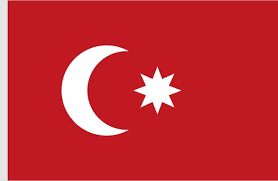 Turkey | Some may say in this life, there are only two things that are certain - death and taxes. However, other wags insist that there is indeed a third certainty that never changes in this mediaeval world: the human lust (if not need) for three things - gold, salt and slaves. Regardless if nations are rich or poor, at peace or at war, fat or starving, almost every nation on earth has a sempiternal need to acquire and accumulate these three things. This third "fact of life" lends the breath of life to the Idrisid emirate, founded by one of the Prophet's line by the name of Idris. Being what remains of Umayyad Arab forays into colonisation of Africa, the Idrisids may not have many warriors, unlike the mighty European nations, the Abbasid Persians or the distant Chinese and Indians, but what they do have is control of some of Africa's most profitable trade routes. The Idrisid hosts also reflect their trans-national and multicultural roots though, and sport zunooj ("black", "guinea") units alongside "white" Saracen ones as well as a few traditions from Umayyad Spain, mainly light swordsmen and raiding cavalry. |
FACTIONS, RELIGION and ETHNICITY
Generally speaking,
- Christians train Religious fanatics and Militant Clergy, and also have access to Imperial Mandate - the process of early modern Centralisation, alas, is five centuries beyond the later years of this mod.....
- Muslims have access to Five Pillars and Darul Islam, which drastically increase the amount of Influence generated by Schools, and also provide access to more powerful units at the Nobles' Court. While they have access to Fedayeen and Ghuzat Volunteers, their rosters are susceptible to political influence. However, not all factions are made alike - Umayyads can't train Ghuzat Volunteers, while the Idrisids are very primitive, and are indisposed primarily toward more devolution in government to field all possible units.
- Norse
- Germans
2
3
